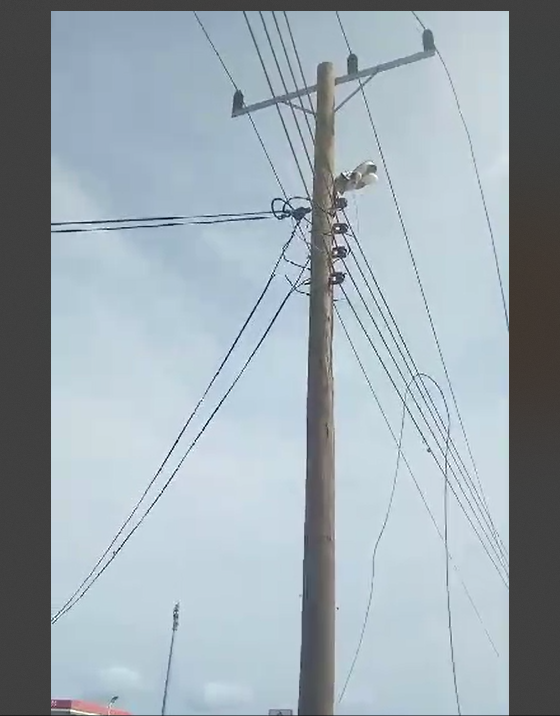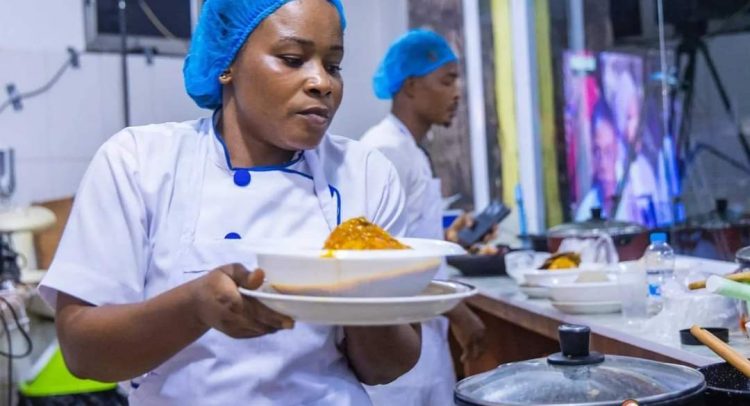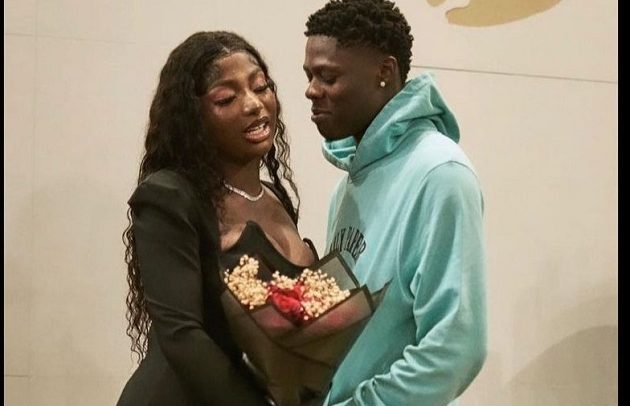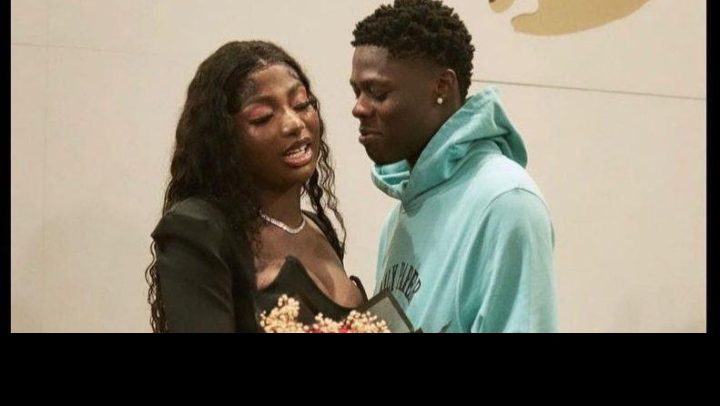
Drama unfolded at an Accra High Court trying Dr Stephen Opuni, a former Chief Executive of Ghana Cocoa Board (COCOBOD) and others, when the case was called last week Thursday.
It all started when Counsel for Dr Opuni, Mr Samuel Codjoe, rose from his seat to object to a question posed by the prosecution, led by the Chief State Attorney (CSA), Evelyn Keelson, to a Witness in the case, during cross examination.
“Again your testimony on these documents is not informed by your personal knowledge of what happened at the time the documents were signed, but only on the experiential learning that you have referred?” Evelyn Keelson asked the Witness.
The question did not, however, sit well with Counsel Codjoe and he rose from his seat to object to it.
“I object, that is an unfair question. The Witness in answer to a question in respect to these exhibits, that is, 51,52 & 53 stated that it was the practice in COCOBOD and, therefore, to ask a question limiting it to experiential basis is unfair “, Counsel Codjoe argued.

Keelson (Prosecutor) then responded: My lord, there is no basis for the objection the witness has answered a number of questions stating why he gave testimony in respect of these documents and the question is only referring to his answer. There’s nothing unfair about the question”.
But the court ruled that, the Witness is in the position to answer this question as to whether his knowledge in respect to Exhibits 51,52 & 53 are only limited to his experiential…the objection is overrated and the Witness is called to answer.
After the court had overruled his objection, Counsel Codjoe decided to resume his seat as lawyers usually do during court proceedings.
But immediately his buttocks touched the cushion of the wooden seat, it caved in, sending the respected lawyer to the floor.
The unfortunate development forced some members sitting in the public gallery, including Dr Stephen Opuni himself, to rush to the scene and lift him (Codjoe) up from the ground.
A new chair was immediately offered him by his junior at the bar, but he initially refused to accept it.
He took a strong exception to what had happened to him, telling the court that he came there to work and not to suffer any physical harm.
Whilst Counsel Codjoe was protesting against what had happened to him, his colleague – Benson Nutsukpui, Counsel for Seidu Agongo and his son, who is also a lawyer, decided to inspect the seats they were also sitting on.
After he had completed conducting the immediate check on the condition of the seats he and his son were sitting on, he informed the court that they were not good and that they should be changed immediately, which the court obliged and proceedings resumed.
The evidence
Before the drama unfolded, Dr Francis Baah, a Witness and Director of Research at Ghana Cocoa Board (COCOBOD) had told the court not to dismiss his experiential knowledge of how contracts are generated and signed by Chief Executive of the board.
He said this after being told by the prosecution that his testimony on Exhibits X and BB was only based on what the general position had been.
The Exhibits are contract documents requesting to sole source lithovit fertiliser and the response from the Public Procurement Authority.
But the prosecution was of the view that Dr Baah who had been subpoenaed to testify for Seidu and Agricult had nothing to do with the exhibit or know the circumstances surrounding their generation.
Mrs Keelson further made a case that during the time Dr Opuni was signing contracts to sole source lithovit and other fertilisers, the Witness had ceased working directly under him as his office manager.
Although the witness agreed, he argued that experiential learning or knowledge ought not to be disregarded or ignored.
He also told the court that Cocoa Heath and Extension Division (CHED) of COCOBOD conducted a research on farmers’ perceptions about lithovit and the data gathered was very positive.
He also explained to the court that CHED, which was responsible for distributing fertilisers to farmers, did not give more than one type of fertiliser to a farmer in a season.
Speaking to a published research data, he said 95% of farmers in Ghana did not buy additional fertiliser besides the ones supplied to them by COCOBOD.
Thus giving credit to farmers’ perception that they prefer lithovit fertiliser to other fertilisers as it induces flowering and increases yields.
Except of cross-examination by Mrs Keelson
Q. Dr Francis Baah, have a look at Exhibits X and BB. With Exhibits X at the time the letter was written, you were not in the first Accused office as office manager. Is that not true?
A. My lord that is correct
Q. Then with Exhibit BB, again you were not working in A1 office as office manager when that letter was written. Is that not so?
A. My lord that is so.
Q. So your testimony on Exhibit X and BB is only based on what the general position to be is that not so?
A. Yes my lord. My lord I believe I have been invited by this honourable court because of the experience I have had. And that my lord, on the basis of that experience that is why… just a causal look of Exhibit X and BB by way of the structure and content these types of letters, my lord because of the subject matter, will emanate from procurement with substantial inputs from Codapec/Hitect my lord.
And to finish up my lord, again on the basis of my experience, such letters are not written in the office of the Chief Executive. They are brought in as other letters to sign by the Chief Executive.
Q. So what you told the court is your opinion based on your experience rather than personal knowledge in the specific situation of these letters. That is correct?
A. That may be the case. However, personal knowledge, respectfully my lord, is acquired from experiential learning. To finish that, all the commemorative knowledge Francis Baah has on cocoa matters come largely from experiential learning.
Q. I’m putting it to you that, you cannot have personal knowledge of the circumstances of these letters because you were not there and had nothing to do with those letters and you have nothing do with it?
A. That may be the case, nevertheless, the same knowledge that I have enabled me to comment on the other Exhibits that were shown to me in terms of how they could have evolved.
Q. Exhibit Z and Exhibit DD are contracts signed at a time when you were not working in the A1 office as office manager. That is right?
A. My lord, that is correct on the basis of the date that the contracts were signed.
Q. You had nothing to do with those documents. Is that not so?
A. Yes my lord in so far as they were not signed in my presence and I did not author them
Q. once again your evidence in this court in respect of these documents I is not personal knowledge of what happened at time, but rather what you called experiential learning?
A. Yes my lord that is correct. However, my lord experiential knowledge I will submit is not to be discarded or discounted if it provides some emulated on the issues.
Q. So, even with Exhibit U, which was signed at the time you were in the A1 office as office manager, you had nothing to do with that document. Is that not so?
A. My lord, per Exhibit U, that is so.
Q. Now you testify about a number of documents including Exhibits 51, 52, 53, which are also contracts entered into by the Chief Executive of COCOBOD for the supply of various fertilisers?
A. Yes my lord.
Q. Again your testimony on these documents is not informed by your personal knowledge of what happened at the time the documents were signed but only on the experiential learning that you have referred?
Codjoe: I object that is an unfair question. The witness in answer to question in respect to these exhibits i.e 51,52 & 53 stated that it was the practice in COCOBOD and therefore to ask a question limiting it to experiential basis is unfair
Prosecution: My lord, there is no basis for the objection the witness has answered a number of questions stating why he gave testimony in respect of these documents. And the question is only referring to his answer. There’s nothing unfair about the question .
B/C: the witness is in the position to answer this question as to whether his knowledge in respect to Exhibits 51,52 & 53 are only limited to his experiential…the objection is overrated and the witness is called to answer.
Q. Question repeated…
A. It is partially so in the sense that Exhibits 51,52 & 53 come in the state, which they are now through an organic process. What I have brought to bear in terms of experience provides significant contribution as to the development of these documents.
Q. I’m putting it to you that your testimony does not address the specific issues of what happened with the specific documents as the specific times because you simply don’t know what happened because you were not there?
A. Yes my lord I agree that I was not there. But I believe that I have offered insights of related documents are developed at COCOBOD.
Q. Now Exhibit U, Z and BB were signed by the A1 as CE of COCOBOD. Is that not so?
A. Yes my lord Exhibits U, Z and DD were signed on behalf of the purchaser and the purchaser I believe of Ghana Cocoa Board.
Q. Now you in your evidence, you told this court that no signal fertiliser could determine cocoa yield in Ghana?
A. Yes I said that. I meant the aggregate cocoa obtained. No signal fertiliser or input can determine the aggregate output of cocoa that we get.
Q. But the farmers who used the fertiliser used various fertilisers at various times for the cocoa?
A. Yes my lord. So that when one is interested in a specific fertiliser that the farmer has used, one has to ask specific questions and elicit responses …or any
Q. You also told this court the effect of fertilisers is evaluated by CRIG as an institution in COCOBOD with?
A. That is so…my lord when a product, agrochemicals, fertilizer or machine is intended for use on cocoa in Ghana it is the mandate of CRIG to evaluate the report in the suitability or otherwise of that particular production and that is one level of evaluation. That is the scientific evaluation of the product.
When the product is approved by CRIG of COCOBOD and it is given to the extension wing of COCOBOD that is CHED, which I headed sometime ago, there is another level of evaluation which the functions of CHED permit it to undertake. And that is my lord, farmers’ perceptions or reactions on the product. That kind of evaluation is not exclusive to CRIG.
Q. Dr Baah, you told the court that in respect of Exhibit 138/A2/A3 that you were with the team for only one day?
A. Yes my lord.
Q. The report covers only the period between 7th to 25 April 2015.
A. Yes my lord.
Q. Do you know as at the time to this report whether the farmer in this region covered by the report, do you know the other fertilisers, which had been supplied to farmers in this region?
A. Yes my lord. Other fertilisers were supplied if my memory serves me right and it is not captured in the report, other fertilisers that were supplied to farmers are sidalco, asase wura cocoa feed, natural organic fertiliser, there is a fertiliser like that.
Q. So clearly from the report, Lithovit fertiliser was not the only fertiliser the farmers had used?
A. That is correct. No signal farmer would receive more than one particular type of fertiliser in a season. At least not the ones supplied by COCOBOD.
Q. But you know that the farmers would not use only the fertilisers supplies by cococod
A. Yes my lord that is correct but …95% of farmers in Ghana and this is based on published data in research, do not buy additional fertiliser besides the ones supplied by cococod but some do
The post High Court chair fails ‘integrity’ test appeared first on The Ghanaian Chronicle.
Read Full Story





















Facebook
Twitter
Pinterest
Instagram
Google+
YouTube
LinkedIn
RSS